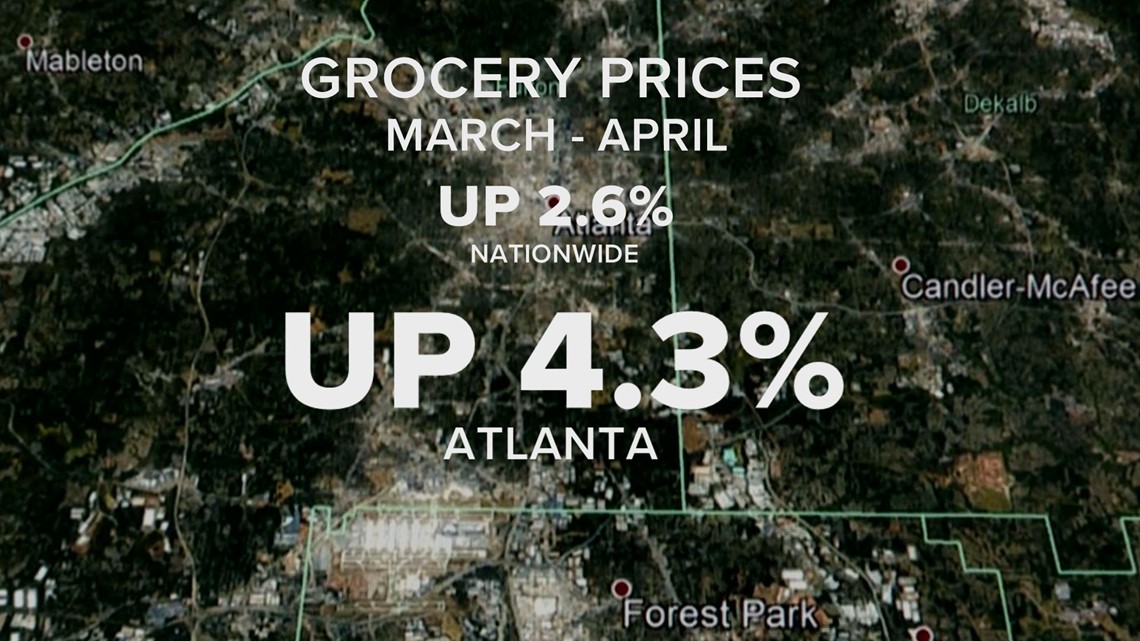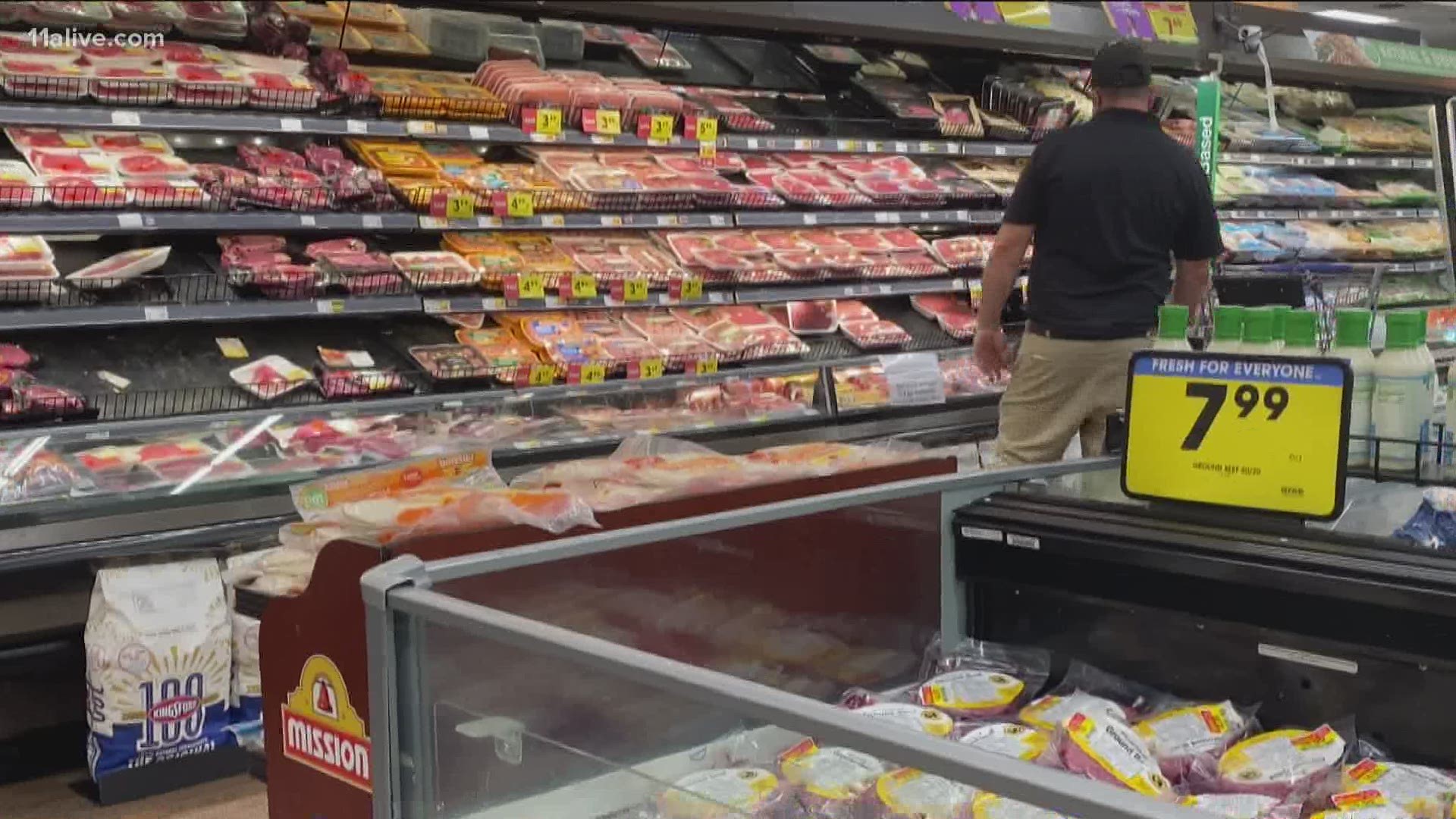ATLANTA — When you’re in the grocery stores in metro Atlanta, and you’re looking at the higher prices, your eyes are not deceiving you. Grocery prices really have gone up, higher and faster here, than they have in many other parts of the country.
According to the Bureau of Labor Statistics’ latest Consumer Price Index, grocery prices spiked nationwide, from March to April, an average of 2.6 percent—the biggest, one-month increase since 1974.
But in Atlanta, the CPI shows grocery prices were up 4.3 percent, from March to April. By comparison, they increased 3.6 percent in New York City.
Douglas Bowman, of Goizueta Business School at Emory University in Atlanta, says farmers and manufacturers and wholesalers in the nation’s coronavirus hot spots continue to face increasing costs from dealing with the virus, and they continue to slow their production output, temporarily, while passing their higher costs on to the grocery retailers.
But Bowman says that in the areas of the country where infections have decreased, grocery prices are stabilizing or decreasing. In the former hot spot of Seattle, for example, grocery prices increased less than one percent last month.
“Which suggests that once things start to settle down, we might be okay,” Bowman said Wednesday. “A lot of the panic buying that Seattle had seen earlier has dropped off ... We certainly see some evidence from the west coast that prices will stabilize here. Will they go back down? We’re not seeing that, yet.”


Kathy Kuzava, president of the Georgia Food Industry Association, says the higher prices are evident here.
“Absolutely we are seeing higher prices in several of our items,” she said. “This is an absolutely unprecedented time for our industry. The supply and demand is such that we have never seen before. It’s almost like the day before Thanksgiving every single day, right now, for us,” but without having had any time to prepare because the pandemic impacted the nation relatively suddenly.
Kuzava says even though grocers in metro Atlanta, for now, are passing on those higher prices to customers because of what they are paying suppliers, the grocers are struggling to maintain profit margins of around one or two percent, just to stay in business.
“It’s been challenging, there’s no question,” she said. “I think as fast as prices have gone up, I also think you’re going to watch them go down, as well," she predicted. "As more plants get up again running, I think that there’s going to be more supply coming in the stores and as a result the prices will start going down.”
She believes they may start to go down, or at least stabilize, by the end of May.
Felix Turner, manager of corporate affairs for Kroger’s Atlanta Division, emailed this statement to 11Alive News:
“There is not a single dynamic affecting grocery prices. COVID-19 has impacted the grocery supply chain on a number of different fronts – from record consumer demand to the challenges many suppliers are facing due to the global pandemic.
“Kroger is making every effort to keep elevated costs from being passed down to our customers. To help shop smarter and maximize savings, customers can visit Kroger.com to view weekly sales and download digital coupons. We are also providing free curbside delivery for customers.
“Products that are most affected are those that are generally in high demand, but supplies are temporarily limited, such as meat and poultry products.”
---
11Alive is focusing our news coverage on the facts and not the fear around the virus. We want to keep you informed about the latest developments while ensuring that we deliver confirmed, factual information.
We will track the most important coronavirus elements relating to Georgia on this page. Refresh often for new information.
RELATED HEADLINES

